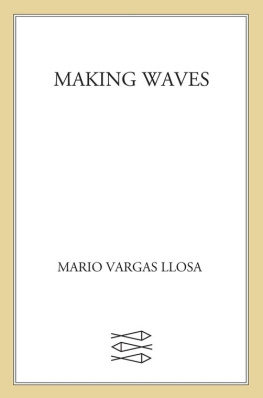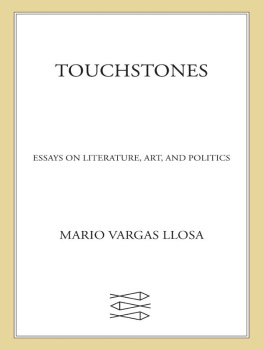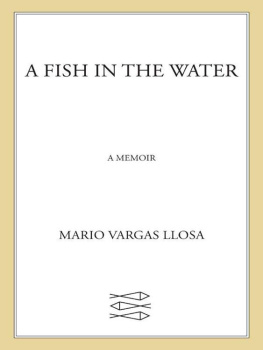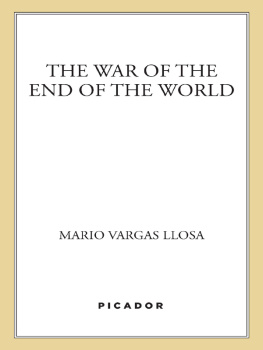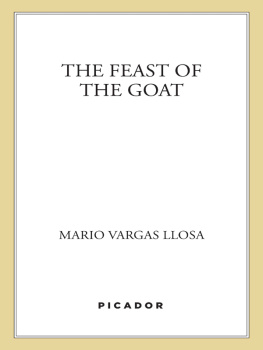Raymond Leslie Williams - Mario Vargas Llosa: a life of writing
Here you can read online Raymond Leslie Williams - Mario Vargas Llosa: a life of writing full text of the book (entire story) in english for free. Download pdf and epub, get meaning, cover and reviews about this ebook. year: 2014, publisher: University of Texas Press, genre: Detective and thriller. Description of the work, (preface) as well as reviews are available. Best literature library LitArk.com created for fans of good reading and offers a wide selection of genres:
Romance novel
Science fiction
Adventure
Detective
Science
History
Home and family
Prose
Art
Politics
Computer
Non-fiction
Religion
Business
Children
Humor
Choose a favorite category and find really read worthwhile books. Enjoy immersion in the world of imagination, feel the emotions of the characters or learn something new for yourself, make an fascinating discovery.
- Book:Mario Vargas Llosa: a life of writing
- Author:
- Publisher:University of Texas Press
- Genre:
- Year:2014
- Rating:4 / 5
- Favourites:Add to favourites
- Your mark:
- 80
- 1
- 2
- 3
- 4
- 5
Mario Vargas Llosa: a life of writing: summary, description and annotation
We offer to read an annotation, description, summary or preface (depends on what the author of the book "Mario Vargas Llosa: a life of writing" wrote himself). If you haven't found the necessary information about the book — write in the comments, we will try to find it.
Mario Vargas Llosa: a life of writing — read online for free the complete book (whole text) full work
Below is the text of the book, divided by pages. System saving the place of the last page read, allows you to conveniently read the book "Mario Vargas Llosa: a life of writing" online for free, without having to search again every time where you left off. Put a bookmark, and you can go to the page where you finished reading at any time.
Font size:
Interval:
Bookmark:
BY RAYMOND LESLIE WILLIAMS
Mario Vargas Llosa
A LIFE OF WRITING

University of Texas Press
AUSTIN
Copyright 2014 by the University of Texas Press
All rights reserved
First edition, 2014
Requests for permission to reproduce material from this work should be sent to:
Permissions
University of Texas Press
P.O. Box 7819
Austin, TX 787137819
http://utpress.utexas.edu/index.php/rp-form
LIBRARY OF CONGRESS CATALOGING-IN-PUBLICATION DATA
Williams, Raymond L.
Mario Vargas Llosa : a life of writing / by Raymond Leslie Williams. First edition.
pages cm
Includes bibliographical references and index.
ISBN 978-0-292-75812-4 (cloth : alk. paper)
1. Vargas Llosa, Mario, 1936Criticism and interpretation. I. Title.
PQ8498.32.A65Z943 2014
863'.64dc23
2013048676
doi:10.7560/758124
ISBN 978-0-292-76736-2 (library e-book)
ISBN 978-0-292-76737-9 (individual e-book)
Preface
Nobel laureate Mario Vargas Llosa is one of the major Latin American writers and public intellectuals of the twentieth and twenty-first centuries. He is also one of the most prolific, widely read, and polemical writers of the Spanish language of any period. Among his predecessors in receiving the Nobel Prize for Literature who wrote in SpanishOctavio Paz, Camilo Jos Cela, Gabriel Garca Mrquez, Vicente Aleixandre, Miguel ngel Asturias, Gabriela Mistral, Jacinto Benavente, and Jos EchegarayVargas Llosa is the only one who is still living, actively engaged in writing and the focus of cultural and political debate throughout the Hispanic world. Among the writers of the much-heralded 1960s Boom of the Latin American novelJulio Cortzar, Carlos Fuentes, Garca Mrquez, Jos DonosoVargas Llosa is the only one still actively engaged in the writing of fiction: Cortzar, Fuentes, and Donoso are now deceased, and Garca Mrquez, in his eighties, has become less visible and productive in recent years. In November 2010, approximately one month after receiving his telephone call from Peter Englund on behalf of the Swedish Academy in Stockholm, however, Vargas Llosa, at the age of seventy-four, came forth with his sixteenth novel, El sueo del celta.
Since the publication of Jos Miguel Oviedos pioneer early book, Mario Vargas Llosa: La invencin de una realidad (1970 and 1982), critical studies on Vargas Llosas work have been continual and abundant; these analyses offer a wide range of formal study, as well as an eclectic body of textual, political, feminist, and psychological readings. Of the latter, Roy Boland has published Mario Vargas Llosa: Oedipus and the Papa State (1988), the first book-length consideration of trauma in Vargas Llosas work.
To some extent, this book is a consideration of the literary consequences, in the twenty-first century, of Vargas Llosas Oedipus complex as introduced in Bolands book. My readings have been informed by the work of Cathy Caruth (Unclaimed Experience: Trauma, Narrative, and History), Sigmund Freud (Beyond the Pleasure Principle), Arthur W. Frank (The Wounded Storyteller: Body, Illness, and Ethics), Judith Hehrman (Trauma and Recovery), and David Aberbach (Surviving Trauma: Loss, Literature, and Psychoanalysis). My intention is not to apply any of their theories; rather, my understanding of trauma and how it works owes much to these informed scholars. A recent volume on the politics of Vargas Llosa, published in 2010 under the title Vargas Llosa and Latin American Politics (Juan E. De Castro and Nicholas Birns, editors) is testimony to the ongoing current interest in the work of one of Latin Americas most controversial Nobel laureates. More recently, Efran Kristal and John King have co-edited a volume of the latest valuable readings of Vargas Llosas novels. This current study, however, is the first single-authored book on Vargas Llosas complete twentieth- and twenty-first-century fiction.
In recent years, several lines of critical thought or narratives have dominated the public and scholarly image of this writer and his work. On the one hand, journalists and some scholars have claimed, since the 1970s, that the literary success of Vargas Llosa and other writers of the 1960s Boom is primarily the product of slick marketing by multinational publishing companies. This narrative, which began with early commentaries by the renowned and now deceased Uruguayan critic ngel Rama, who believed that writers dedicated to transculturation, such as Jos Mara Arguedas, Juan Rulfo, and Garca Mrquez, practiced a more valid form of literary expression than the more cosmopolitan Fuentes and Vargas Llosa. Hernn Vidals book on the 1960s Boom also argues that the fiction of Vargas Llosa and his cohorts was of no more, and perhaps less, merit than a long list of other Latin American writers who have been overshadowed by the marketing expertise of multinational companies operating in Latin America, Europe, and the United States.
A second line of thought or critical narrative is slightly more forgiving: Vargas Llosa admittedly wrote three novels with complex and nuanced representations of Peruvian and Latin American reality during the 1960s BoomLa ciudad y los perros (1963), La casa verde (1966), and Conversacin en La Catedral (1969)but since then his work has been less complex and significant. Within this line of thought are a substantive set of critical pieces that are basically negative toward Vargas Llosas writing.
A third line of thought, common among U.S. academics in Latin American studies, is that Vargas Llosa simply has become too politically conservative and narrow to be of interest today; these commentaries often claim that his vision as a writer is negative toward women, ethnic minorities, and other groups that do not belong to the social and political elites of Peru or other parts of Latin America. These three broadly described critical narratives contain several kinds of more in-depth, detailed analysis and argument, some of which I find useful and productive for the reading of this author, as will be discussed in of this book.
The central focus of this book, however, is to question the critical lacunae and critical misrepresentations of Vargas Llosas writing of the twenty-first century. The structure of this study is an outline for my engagement with these discussions. In with a detailed description of the writers traumatic childhood and later connect this childhood experience with his lifetime critique of authority figures.
, A Novelist for the Twenty-First Century, is the centerpiece of this book and focuses on Vargas Llosas five novels published in the late twentieth and twenty-first century: Lituma en los Andes (1993), La fiesta del Chivo (2000), El paraso en la otra esquina (2003), Travesuras de la nia mala (2006), and El sueo del celta (2010). I discuss the ways in which these works are comparable in complexity, nuance, scope, and significance to his more generally lauded works of the 1960sLa ciudad y los perros, La casa verde, and Conversacin en La Catedral. My focus on the five novels of the twenty-first century makes this book the first comprehensive study of Vargas Llosas novels with emphasis on the later fiction.
In cuadernos de don Rigoberto (1997), the fictional work of the twentieth century. I do not discuss these novels work by work. Rather, I establish some topics that are constant throughout Vargas Llosas career, and offer analysis of them in the context of several works. These topics are the novels that are his entertainments, his work as a modernist and a post-modernist, and his work reread in an ecocritical context.
Next pageFont size:
Interval:
Bookmark:
Similar books «Mario Vargas Llosa: a life of writing»
Look at similar books to Mario Vargas Llosa: a life of writing. We have selected literature similar in name and meaning in the hope of providing readers with more options to find new, interesting, not yet read works.
Discussion, reviews of the book Mario Vargas Llosa: a life of writing and just readers' own opinions. Leave your comments, write what you think about the work, its meaning or the main characters. Specify what exactly you liked and what you didn't like, and why you think so.

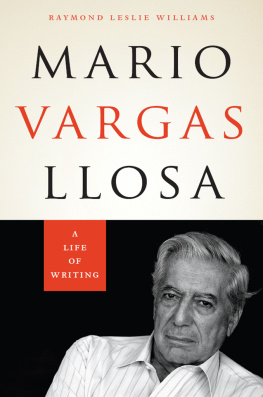
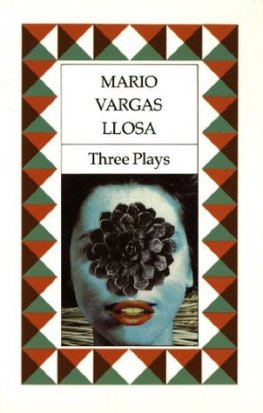
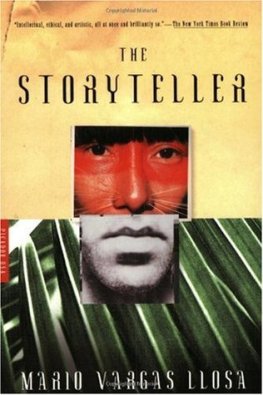

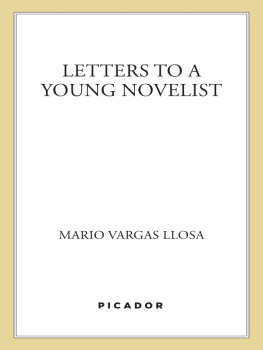
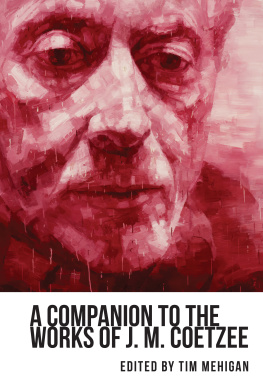
![Mario Vargas Llosa [Mario Vargas Llosa] - Captain Pantoja and the Special Service](/uploads/posts/book/142220/thumbs/mario-vargas-llosa-mario-vargas-llosa-captain.jpg)
